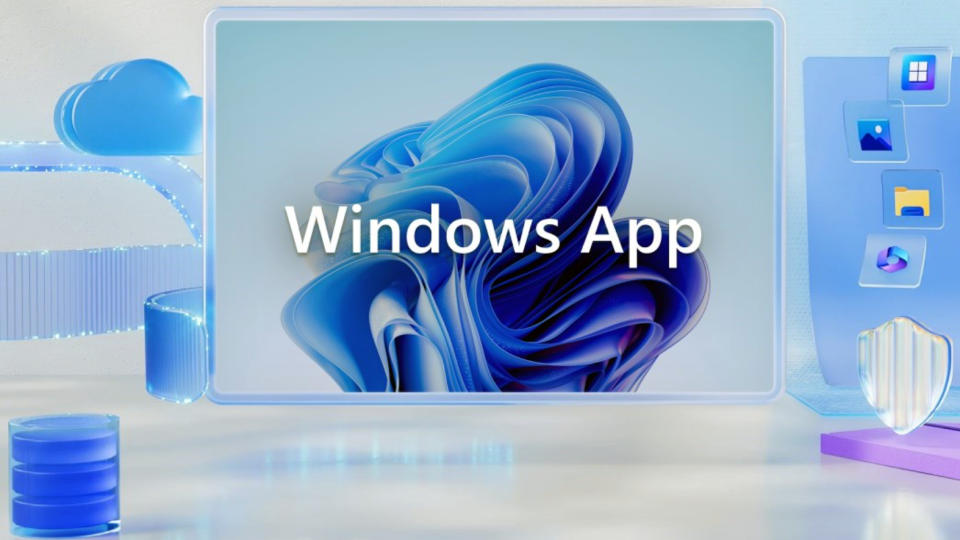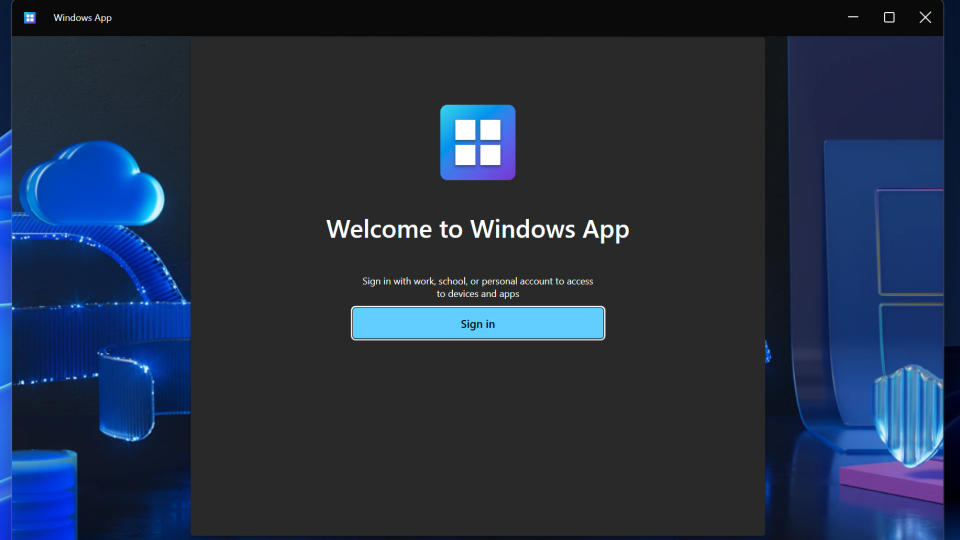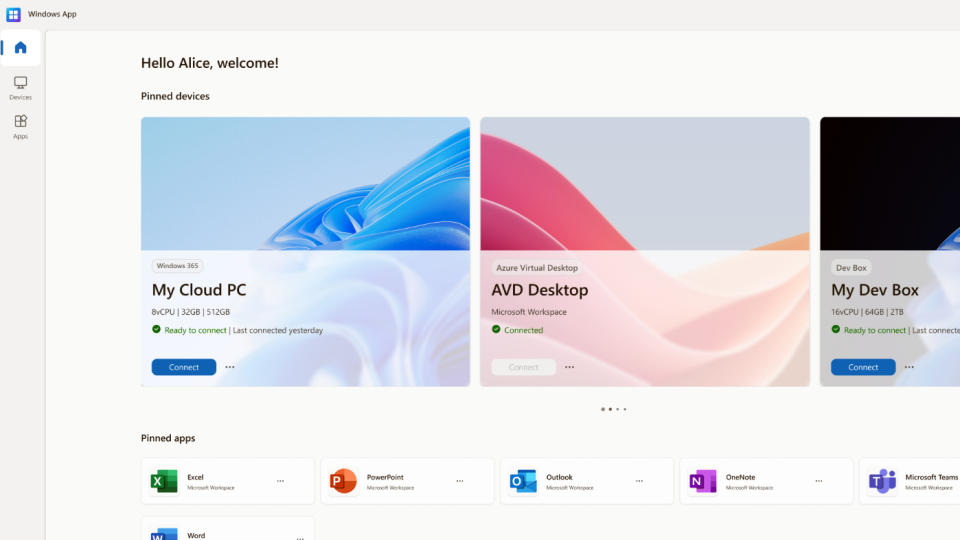Windows 11 just became an app for your iPhone — here's how it works

Microsoft has released a new app that's designed to let you access Windows on Android devices as well as iPhones, iPads and Macs, potentially making Windows 11 more accessible than ever.
This could be a big deal because it may soon be the most convenient way to access Windows when you're away from your PC, as the app can effectively stream a copy of Windows 10 or 11 from Azure Virtual Desktop, Microsoft Dev Box, Microsoft’s Remote Desktop Service, Windows 365 or a remote PC.
This app basically replaces and improves upon the Microsoft 365 app, and it has features to make Windows usable on other devices like resolution scaling, mouse and keyboard support, and redirection for peripherals like webcams and printers. That means you could effectively stream a copy of Windows to your iPad and use the front-mounted camera as your webcam, for example.
You can also do neat things like connect your iPhone to an external display wirelessly via AirPlay, then use the Windows app to run a copy of Windows on the display while using your iPhone as a touchscreen to control the mouse pointer. While you can already kludge together similar working arrangements by downloading apps, fiddling with streaming settings and generally driving yourself slightly batty, this new app looks likely to make the process of using Microsoft services on non-Microsoft devices way simpler.

The Windows App was unveiled during Microsoft's Ignite conference, and it's currently only available in a limited preview form on select platforms and only supports business or school accounts. However, it says right on the login screen that you need to "sign in with [a] work, school, or personal account" so it seems highly likely that you'll be able to log in with your personal Windows account by the time the app is out of preview.
When you do log in, you'll land on a hub page that gives you options for doing things like logging into different Microsoft accounts, accessing different virtual PCs or launching Microsoft apps like Excel, PowerPoint and Word.

You'll also have access to platform-specific settings you can use to tailor the experience to your device, like a button to "optimize for Retina displays" (which scales the resolution to match the resolution scaling in macOS but eats up more bandwidth) or a setting to auto-lock the app so when you rotate your iPhone or iPad it doesn't spin your Windows session along with it.
However, right now the Windows App is barely usable as Microsoft works to iron out the kinks and roll it out to more platforms. In addition to only supporting educational or business accounts at this stage, the Windows App is currently only easily accessible in the Microsoft Store on your Windows PC, with the Android version yet to appear on the Google Play Store and the iOS/iPadOS version in limited testing via Apple's TestFlight service.
It should become easier to access as we inch closer to 2024, but if you just can't wait to try it out you can check out Microsoft's guide to getting started with Windows App.
Outlook
The new Windows App is exciting for those of us who like the idea of getting work done from an iPad, but there's a lot more going on here besides a revamp of Microsoft's Windows streaming services.
While you've long been able to access Microsoft services like Excel and Word on non-Windows platforms thanks to apps like Microsoft 365, the new Windows App looks like it'll be easier to use and more functional than anything that came before it. The fact that it also incorporates a central hub which lets you quickly access copies of Windows streaming from remote PCs (your own or Microsoft's) is nice too, as it effectively marries the functionality of two previous apps (Microsoft 365 and Microsoft Remote Desktop) into one, more user-friendly Windows App.
But look past the surface benefits and you may catch a glimpse of Microsoft's bigger ambitions for Windows. As The Verge helpfully points out, disclosures in the recent FTC v. Microsoft hearing (when Microsoft successfully defended its Activision Blizzard acquisition) revealed Microsoft aims to make consumer versions of Windows fully streamable from the cloud, to any device—just like it's already doing for businesses with Microsoft 365.
This is clearly a big step in that direction, and you should expect Windows to become ever more cloud-centric as we step into 2024. Remember, that's the year Apple will reportedly allow third-party app stores on the Apple App Store, which means Microsoft will be able to sell things like Microsoft 365 and Xbox Game Pass subscriptions inside the Windows app on your iPhone or iPad.

 Yahoo Autos
Yahoo Autos 